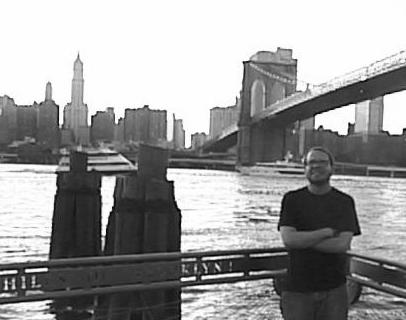Last evening on John Stewart's The Daily Show, Bill Gates introduced Windows new operating system, Vista. The program was an excellent opportunity for Gates to reach his target audience of young professionals, who mainly make up The Daily Show's audience base, and tote his new product. Myself a Mac user, I hadn't even heard of the product being released anytime soon, just hearing wispers about its beta from last year. Though it wasn't the new operating system which caught my attention during the interview. Instead, it was the discussion the two men had on the future of technology.
Gates is still adamant that their technology will completely revolutionize the way people communicate in the next five years. The model he presented continues to fuse the cyber world with current forms of media distribution, invisioning a You Tube that will become more of a "You Couch Potato.com."
I would argue that the biggest impact Gates invisions is the way in which we receive our media. I, like many (and I consider myself very tech savvy), will stil prefer to watch TV at the end of a hard day at work. And we'll still like watching a movie on the big screen instead of a brightly outlined white box on a computer screen. Gates argued that "choice" was one of the things that would change the most. But I am a believer that most Americans, and the world for that fact, don't realy care about how they get their entertainment news, so long as they know what happens to Hilton or swank. A study on Brazilian soap operas summed it up for me when I was in graduate school, where one scholar said that television in Brazil was more of an escape than a distribution of knowledge. When FM came out in the 1960s, after it had been in the research labs for twenty-five years, some thought it could be used to improve the culture of our society, giving them classical music in clear stereo sound. Still, Americans prefer Opie & Anthony over a Beathovan opus. They participate more on a passive level than an active one.
What has changed in the world, as I've stated earlier in this blog, is the rise of the independents, the little man or woman who can create a story in their room, and then they can distribute it all over the world. The "nitch" has thanks to give to the rise in computer technology. But when the world ends, I have a feeling that everyone will still be watching CNN, instead of watching dancing dogs on You Tube.


0 Comments:
Post a Comment
<< Home